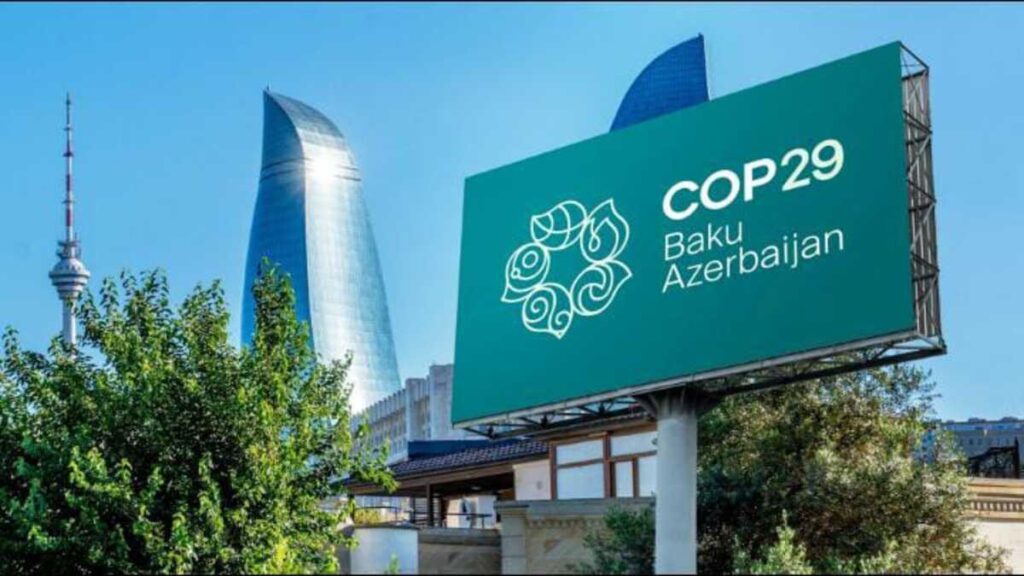As COP29 unfolds in Baku, Azerbaijan, African nations are making a bold call for $1.5 trillion in climate financing to combat the severe impacts of climate change that disproportionately affect their communities. This demand underscores the urgent need for substantial financial support from wealthier nations, especially as developing countries grapple with the escalating consequences of global warming.

The conference, which convenes delegates from nearly 200 countries, aims to establish a new global climate finance target to succeed the existing commitment of $100 billion annually. This funding is essential for developing nations to enhance their climate resilience, invest in sustainable energy solutions, and adapt to the inevitable impacts of climate change.
UN Climate Chief Simon Stiell, who has been vocal about the necessity for international collaboration, stated, “Climate finance is not charity; it is an investment in our shared future.” He emphasized that without significant financial backing, many countries will struggle to meet their emission reduction targets and adapt to climate-related challenges.
Azerbaijan’s COP29 President, Mukhtar Babayev, announced the launch of the Climate Finance Action Fund (CFAF) during the opening sessions of the conference. This initiative aims to channel contributions from fossil fuel-producing nations towards climate projects in developing countries. Babayev highlighted that this fund represents a crucial step towards bridging the financing gap and ensuring that vulnerable nations receive the support they need.
The stakes are particularly high this year, as 2024 is projected to be one of the hottest years on record. The increasing frequency and intensity of extreme weather events—such as droughts, floods, and heatwaves—have made it clear that immediate action is required. African leaders are adamant that without substantial financial commitments from developed nations, their ability to respond effectively to these challenges will be severely compromised.
During a press conference held on the sidelines of COP29, Kenyan President William Ruto articulated the sentiments shared by many African leaders: “We are not asking for handouts; we are demanding our fair share of resources to combat a crisis we did not create but are suffering from disproportionately.” Ruto’s remarks resonate with the broader narrative among developing nations that emphasizes equity in climate action.
The absence of key global leaders at COP29—most notably U.S. President Joe Biden and German Chancellor Olaf Scholz—has raised concerns about the potential for meaningful outcomes from this year’s negotiations. However, representatives from African nations remain resolute in their demands for funding and support. They argue that financial negotiations will reveal the true intentions of wealthier countries regarding their climate commitments.
As discussions progress in Baku, there is a palpable sense of urgency among delegates. The world is watching closely as negotiators work towards securing commitments that can steer humanity towards a sustainable future. With critical deadlines approaching for emissions reductions under the Paris Agreement, COP29 represents a pivotal moment for global climate action.
As African nations rally for $1.5 trillion in funding at COP29, their call highlights not only the immediate need for financial assistance but also the broader implications of climate justice and equity on a global scale. The success of this conference could determine whether vulnerable countries can effectively combat climate change and secure a sustainable future for their populations.